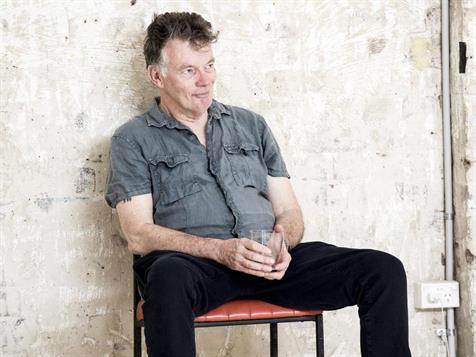
He slept deeply, away from the idiots who were always trying to contact him; as if he was some experiment, a live rat to be tortured, a curiosity to be examined. He had been able to hear all too much; and spent as much time pretending not to hear them as he did listening to the poisonous fronds of thought emerging from surrounding houses. For he did not know who he could trust.
And now he was away from suburbia, as the denizens of Lightning Ridge called Australia's cities with a shudder of dislike.
Those who could cope with suburbia were a different species altogether.
Much of what he had heard through that long, interminable, bitterly cold winter had been harmless. Lasagna for dinner. Medical concerns. Television programs and the endless drivel of government propaganda from the radio.
Sometimes he would hear one of the operatives lying to new recruits amongst the Watchers on the Watch, expressing their distaste for him; and inflamed dislike which would never have been there in the first place if they had not mounted their prolonged surveillance campaigns, and attempted, time and time and time again, to encourage him to have a heart attack or to take his own life; to do their job for them, to relieve the world of his disturbing presence.
Old Alex was determined not to let them destroy him.
The reasons for their being, for he did not regard himself as a singular, or ordinary person, the reasons why he, or they, with their image infested consciousnesses and trails of memory and wisdom and sadness from other lives, were beyond the ken of any of them, including himself. He could no more explain why he had been cast into this unhappy place, forced to listen to the tendrils of malicious thought which would whisper and curl through the long nights, then he could explain the meaning of life.
The frontiers of science were realigning the evolution of the species, and what seemed like magic, or like the voices of the Gods, was in fact an evolution of themselves, or people like themselves, cast forward, cast back. He, like hundreds of others, had volunteered for the sacrifice in an instant, as if it meant nothing; as if it would be an easy assignment, and he had never thought, in that defining instant which would confine him to this planet for so many years, through so many lives, of what it would be like to be so profoundly trapped for such a very long time.
The mistakes that had been made would not be made again.
As he lay away and listened to the occasionally supportive, mostly disparaging, voices of the Watchers on the Watch.
"I told you this guy could hear us."
"I told you he was extraordinary."
"Pigs might fly."
They no more understood a cluster soul, or cluster intelligence, than they understood their own confined fates, or their adopted, inherited Gods and belief systems.
Old Alex listened to the garbage of persistence, for they were on government or military contracts and had nothing to do but watch and wait, for abandonment or indiscretion or proof he was not what he said he was, while his own mind searched through the tedious fog for a friend, a sympathiser, someone of like mind, someone who understood. On the rare occasion when he found them, they were invariably hidden, and did not want their comrades to know.
He kept his secrets of a different style of consciousness; as the Watchers on the Watch spilled their secrets; told him stories of the bureaucratic fiascoes and blind incompetence of government, and most of all, like workers everywhere, of the peculiarity, bastardry and arrogant blindness of their grotesquely overpaid bosses.
It had worked, those strange curses. "You will spend the rest of your life dedicated to exposing what you have learnt."
That is, the dark shapes and intent of government functioning, the ways the machinery set out to destroy their targets, the problem being, those targets were simply citizens who refused to comply with the government narrative of the day, and who not only had every ,right to express their views and to think in an independent manner, but whose very suppression was poisoning the society as a whole. The culture was being destroyed by the very people who thought they were transforming it into something better. They thought, or hoped, a natural idealistic impulse, that they were leaving the world a better place, that they were doing good.
Instead they had come out looking like grubs.
He had stated the theory frequently in his work. That the suppression of debate, the derision of those who did not accept the tertiary acquired theories of tolerance and diversity, who dared to disagree with the government narrative, was leading to a lurch to the right; and straight into the arms of extremist views.
It was a bureaucratic tendency, to quash that which did not fit their narrative, their belief system. But as they worked for their enlightenment, executed the theories they had acquired at the knees of their professors, they destroyed the very culture they wished to save; as they worked for the betterment of mankind, they stirred its darkest forces. The thuggery of group think became the norm.
And in a more mundane sense, as they probed him for a response, there in those long nights, he built his defences.
And so sat last, they finally left. And as his mind wandered across the empty desert; he could finally relax.
They probed him and he resisted. They watched him and he curled into a ball. Hazing only works if the target is vulnerable. He had been very vulnerable. He had clung to old beliefs that humans were essentially good. He had never truly understood, despite all those multiple lives, the base nature of the species in which he had been landed. Crude, barbaric, self-interested, they had no adherence to the truth, that curse, or trait, which had made his own life so difficult.
"Why didn't you allow me the chance for happiness?" he asked of a relationship possibility he himself had killed.
"Because we didn't want you to be happy. You would never have written that book."
All he knew was relief, that the final mustering was taking shape, packing their bags, moving on, afraid of the internal reviews of other bureaucrats with too much money, time and power; bureaucrats who would seize the opportunity to expand their own power and hopefully, in the end, to fix that which was wrong, to ensure that no other journalist would endure the prolonged harassment and intimidation which had been his terrible fate.
Winter was over, and the heat of the Outback soaked through his bones.
THE BIGGER STORY:
 |
| Russel Kiefel pic by Brendan Read |
Former Neighbours star Russell Kiefel died over the weekend after being taken ill during a theatre performance.
The actor played Russell - the abusive father of the Brennan brothers - for a brief stint in the soap last year. He passed away last night after becoming unwell while performing in the play And I'm the Queen of Sheba at Brown's Mart Theatre in Australia.
The theatre has cancelled the rest of the season out of respect for Kiefel, with executive director Sean Pardy calling it a tragic and emotional time for the actor's family and everyone involved in the production.
Kiefel's co-stars - both old and new - have all rallied round to pay tribute to him, with Neighbours actress Colette Mann leading the way with an emotional Instagram post.
Colette Mann, who plays Sheila Canning, on the soap said: “I am very very sad to say that the wonderful actor, Russell Kiefel who played Russell Brennan in 2015 on @neighbours passed away yesterday.
 |
| The late Russell Kiefel in rehearsal for Belvoir's The Blind Giant is Dancing (2016). Photo by Brett Boardman. |
Russell Kiefel, whose career included roles in such landmark Australian films as Breaker Morant and Radiance, as well as work with many of Australia’s most significant theatre companies, has died.
He passed away on Sunday after falling ill backstage during a performance at Darwin’s Brown’s Mart Theatre on Friday night.
Born in 1951, Kiefel graduated from NIDA in 1974. His screen debut was Gillian Armstrong’s 52 minute film, The Singer and the Dancer, made in 1977 with Ruth Cracknell and Elisabeth Crosby in the key roles. He went on to appear in numerous other films including Neil Armfield’s Twelfth Night, telemovie The Leaving of Liverpool, and Children of the Revolution.
He joined Home and Away in 1993, and stayed in television through Heartbreak High, A Difficult Woman, Wildside, Water Rats, Blue Heelers, Stingers and Something in the Air. More recently he appeared in television productions Tricky Business, Neighbours, Childhood’s End and Secret City.
Kiefel also performed regularly on stage for many years, working with the likes of Belvoir, Sydney Theatre Company, Bell Shakespeare, Griffin Theatre Company, Queensland Theatre Company, and State Theatre Company of South Australia.
Colleagues remembered him as a versatile and truthful actor, and a warm and generous friend.
Belvoir’s Artistic Director, Eamon Flack, said, ‘Russell’s theatre home was Belvoir. He is one of our legends, and his rough beauty as an actor and a person has inscribed itself in the ethos of the company.’
Kiefel performed in numerous Belvoir productions over three decades, including Ray’s Tempest, Stuff Happens, The Alchemist, The Tempest, Hamlet, The Power of Yes, The Spook, and Run Rabbit Run.
‘Russell’s last performance for us was in The Blind Giant is Dancing earlier this year, a play he performed in three times over three decades. The original production of that play at Lighthouse in 1983 pulled together the artists and ethos that later formed the foundations of Company B. Russell was part of that production, and of the legendary 1996 revival,’ said Flack.
‘He was one of the true stalwarts of our company and our profession. He is a great loss.’
FEATURED BOOK:















